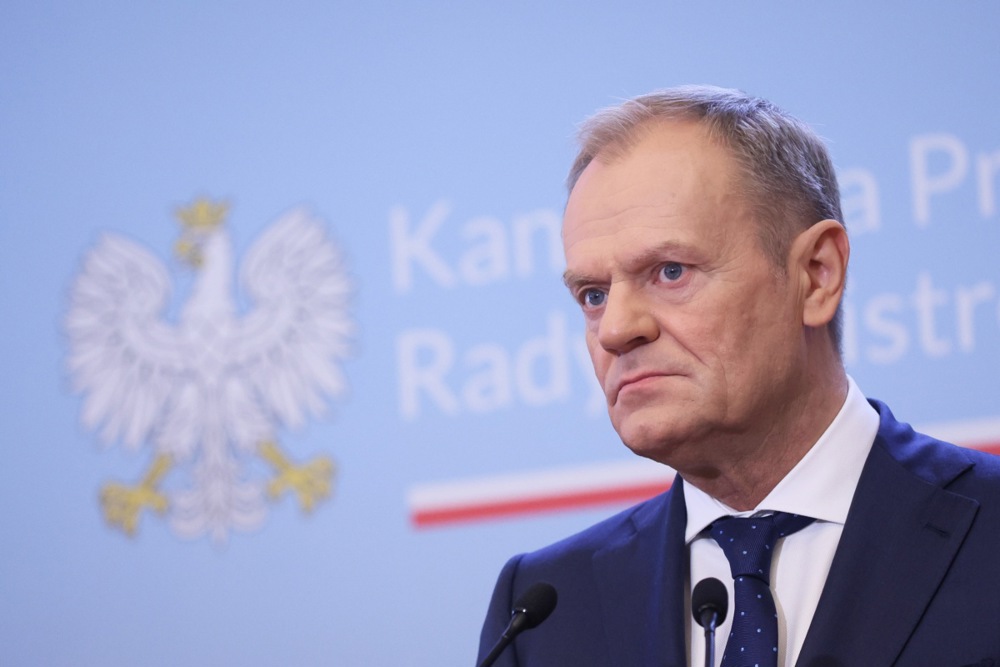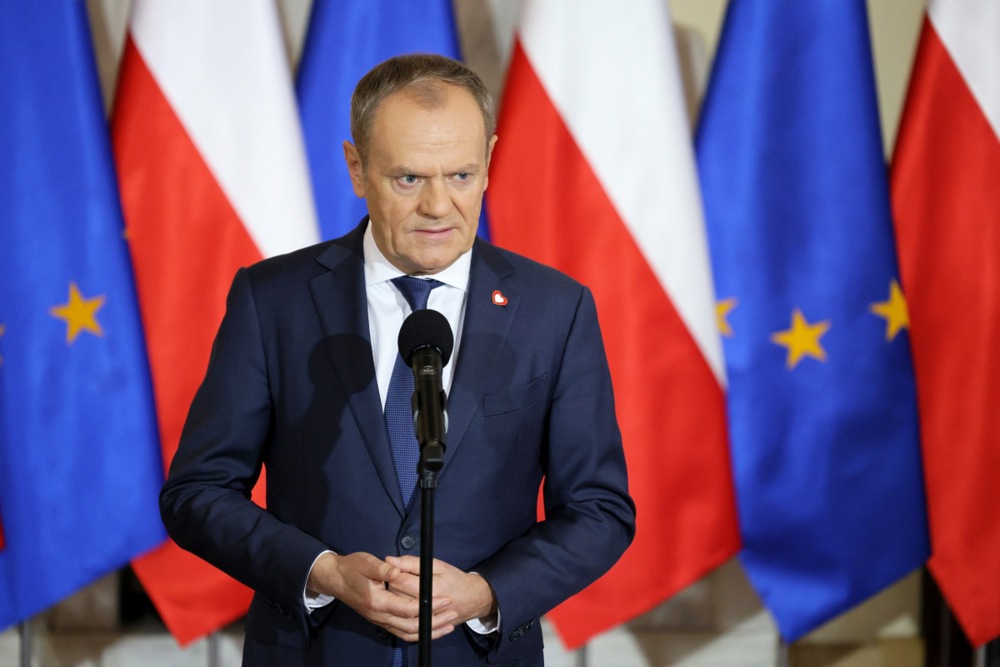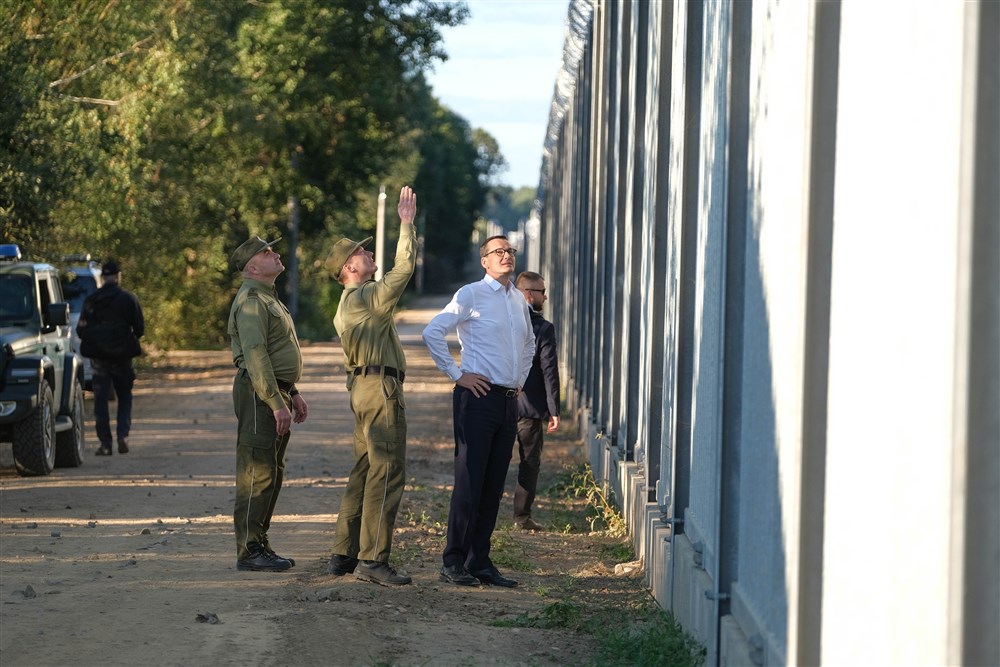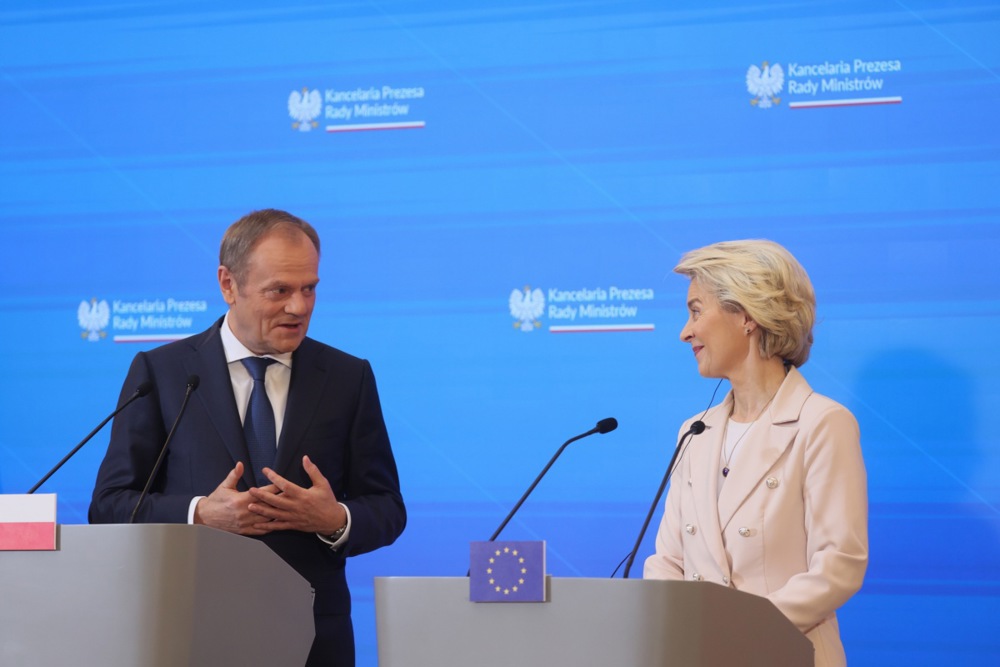Polish Prime Minister Donald Tusk has promised to increase defences on the Polish-Belarus border.
His declaration on May 11 was in answer to what he called a “hybrid war” being conducted by means of “illegal migration”.
Polish finance minister Andrzej Domański then told reporters in advance of the meeting of the Council of the European Union on May 14 that the Polish Government would be voting against the Migration Pact.
That was because “it fails to meet the needs of countries bordering Belarus who are facing hybrid warfare and because it fails to maintain the right balance between accountability and solidarity”, he said.
The Migration Pact was ultimately approved by the finance ministers of European Union Member States on May 14, despite opposition from Poland, Slovakia and Hungary. The Pact aims to comprehensively address migration matters within the EU, including assistance to countries facing migration pressures.
Tusk claimed: “Poland will not welcome any migrants under the Migration Pact,” adding that Poland had already taken in hundreds of thousands of migrants due to the Russia-Ukraine conflict and also tens of thousands from Belarus.
According to the Polish border authority, 2023 saw a rise in the number of attempted crossings from Belarus. This year, the body has noted an increase in organised groups attempting to force their way through, often attacking Polish border guards with stones and branches.
Tusk, who heads the ruling centre-left coalition, is campaigning in the run-up to the European Parliament elections in June where he hopes his Civic Coalition (KO) will gain more votes and MEPs than the opposition PiS, which most opinion polls currently show as being narrowly ahead.
One of the big issues in campaigning in Poland, alongside the Green Deal and national security, is migration.
There had been some official talk of treating migrants who do make it across the border in a more humanitarian manner, yet pro-migration NGOs have reported that “push backs” of would-be arrivals, a practise criticised by Tusk’s party and the Left during the previous PiS government, are continuing.
That is why these NGOs, along with film director Agnieszka Holland – whose film “Green Border” caused uproar for portraying Polish border guards in a negative light, have accused the Government of copying the allegedly “inhuman rhetoric” of its PiS predecessors.
One of Tusk’s MEPs, Janina Ochojska, also criticised him, saying: “I dreamt that Poland would be the first country to say: ‘We do not use push-backs and we do not violate human rights.’ So I am disappointed.”
On his visit to the Belarus border, Tusk said: “I came today primarily so that both the commanders and their subordinates have no doubt that the Polish State and the Polish Government are with them in every situation here on the border.”
He promised that “there will be no spending limits when it comes to securing the border” and that the Government had begun “intensive work on constructing modern fortifications along the entire Polish border with the East”.
“This border is an absolutely unique place due to the pressure of illegal migration.”
Zbigniew Kuzmiuk MP, writing for portal wPolityce.pl, called Tusk’s comments “the height of hypocrisy”, reminding readers how the PM had previously questioned the building of the original fortifications and what he had termed anti-migrant rhetoric of the PiS government.
During the border crisis of 2021, Tusk had attacked the PiS administration for its approach to would-be arrivals telling reporters: “There is no need to make anti-migrant propaganda – because these people need help.”





